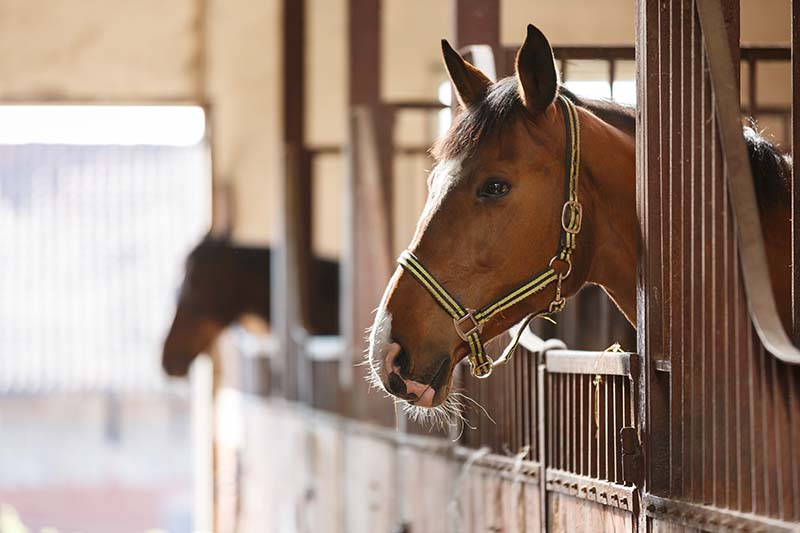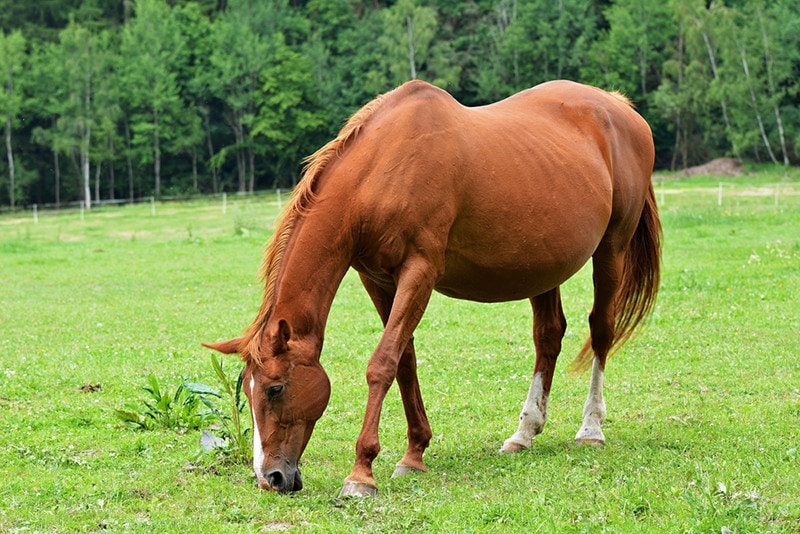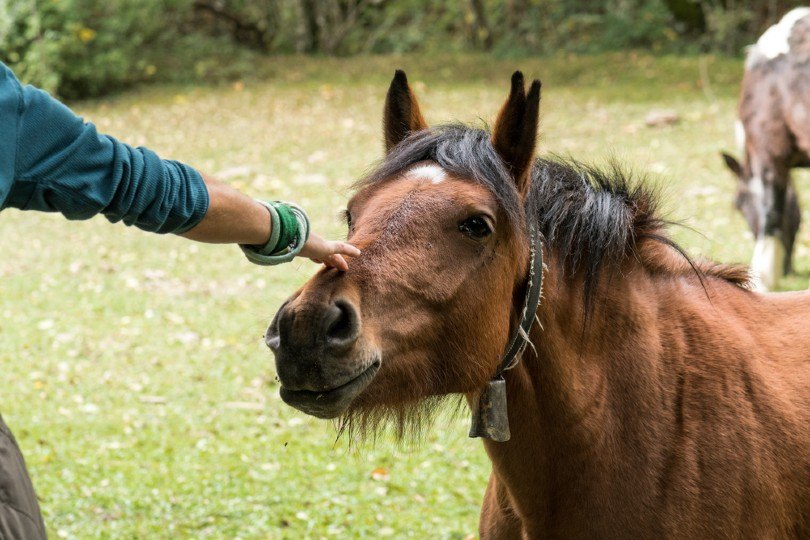
When you own horses, it’s absolutely essential that you learn how to recognize frequently seen health issues to stay on top of things. Sometimes, our horses encounter problems that require medical attention and evaluation.
Polysaccharide storage myopathy, or PSSM, is a muscular disease that can affect horses. Because of its nature, it’s essential to gain knowledge about exactly what it can cause and how to manage it. Let’s find out more!
Causes of PSSM
There are two main types of PSSM. The causes depend on the type.
PSSM-1 vs. PSSM-2
PSSM-1 genetically passes through the bloodline, caused by the GYS1 mutation. PSSM-2 has no link to the GYS1 mutation and is therefore an anomaly for science at this time.
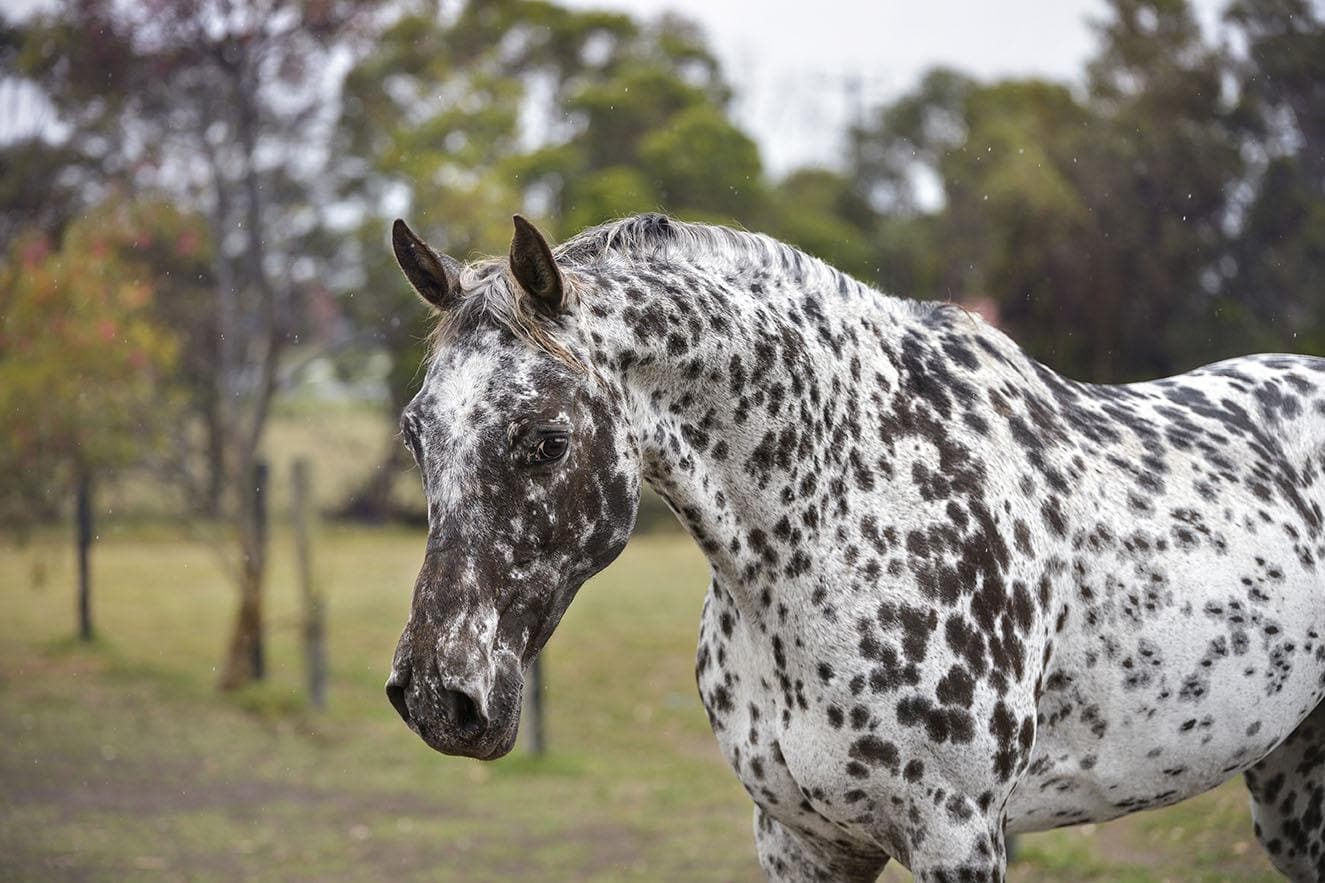
Is a Particular Horse Breed Susceptible to PSSM?
Even though all it takes are the right genetics to contract PSSM, it isn’t prevalent in certain breeds. The genetic mutation is thought to have occurred prior to the foundation of modern horse breeds, so it isn’t linked to any given breed or pedigree within a breed. Furthermore, a horse only needs one copy of a mutated gene to develop the gene, so they might have parents that don’t display any signs of PSSM.
Signs of PSSM
How Is PSSM Diagnosed?
When vets screen for PSSM-1, they perform a blood test or retrieve a hair sample to reveal the GYS1 variant. If the test shows a positive GYS1 result, the diagnosis is complete.
PSSM-2 doesn’t have a surefire cause, but it is diagnosed through a muscle biopsy. In this instance, the sample is often collected from the semimembranosus muscle, which forms part of the hamstring muscle group.
How Do You Manage Horses with PSSM?
There is no treatment for PSSM and the condition cannot be reversed. However, managing it is possible. Tailoring a diet precisely to fit their needs is essential, which can be at the supervision of your vet.
You can also help to manage the condition with exercise. Physical therapy with a professional is sometimes necessary, so that is another avenue of care.
Dietary Care for PSSM Horses
PSSM sufferers require a low-starch, high-fat diet to reduce the amount of abnormal sugar in the muscles. Feed them healthy amounts of fats and oils—some horses need 2 cups of oil per day, while others need very little. Horses with PSSM may not be able to graze, depending on the extent of their condition. Adding in magnesium and acetyl-L carnitine helps with muscle relaxation and glucose tolerance.
Since the signs can vary from horse to horse, working with an equine nutritionist can help you determine exactly what to feed, how much, and what to use for additional supplementation.
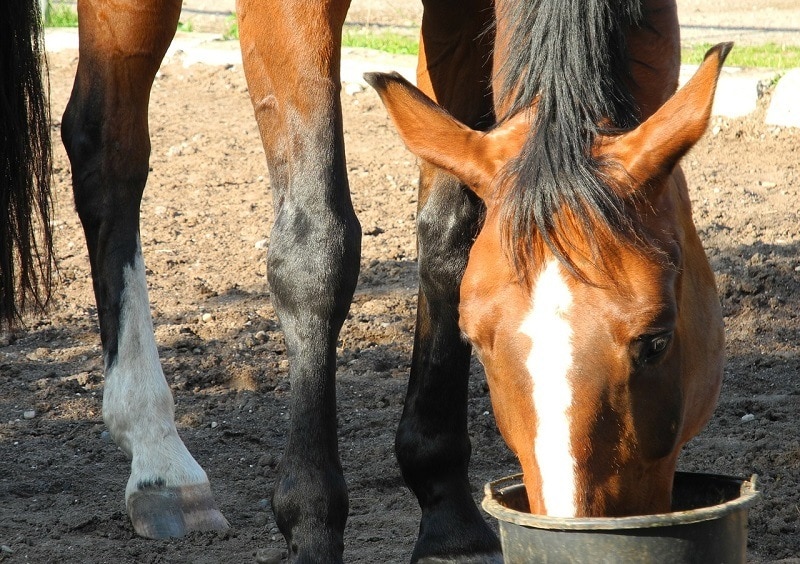
Exercise for PSSM Horses
Even though there is much more glycogen in a PSSM-positive horse, they can experience energy deficits when they exercise. So, diet is the primary focus, while exercise is tailored to fit the horse’s needs.
Movement enables your horse to utilize the glycogen in their bodies, so the more they use their muscles, the better. It enhances mobility and metabolism and prevents tying up.
Even though you can safely perform an exercise at home with your horse, sometimes professionals need to step in to help. Some horses with PSSM require physical therapy on a routine schedule to strengthen their gait and increase proper muscular function.
FAQs
Is PSSM Curable?
There is no known cure for PSSM, but the signs are manageable through treatment, exercise, and diet.
Is PSSM Preventable?
Unfortunately, since PSSM is genetic, horses receive the defect from their parents. The only real way to prevent PSSM is to avoid breeding a horse diagnosed with PSSM-1. PSSM-2 hasn’t revealed a direct cause, but breeding is still ill advised.

Can Other Disorders Mimic PSSM?
Hyperkalemic periodic paralysis is a genetic muscle disease that might be confused with PSSM, as they share many common signs. It causes muscle spasms, weakness, paralysis, and trembling in horses.
Is PSSM Expensive to Manage?
As with any other medical condition, PSSM can be expensive to manage. Since it is lifelong, it presents a repeating cost. There is no way to determine just how expensive it is because the severity varies from horse to horse. It will depend on the dietary modifications, supportive medication, or elective therapies you use to combat the issue.
Horses with mild PSSM might be totally manageable with diet and exercise alone, making the disease inexpensive to treat. However, horses with extreme tying up might require more frequent professional intervention.
Work diligently with your veterinarian to determine a care plan for your horse. Understanding the therapeutic requirements can put into perspective how much out-of-pocket expense you will incur.
Wrapping Up
Even though PSSM is a lifelong problem, it doesn’t have to be debilitating. With a proper care plan, these horses can live semi-normal lives with few complications.
Any horse who has PSSM-1 should be entirely out of any breeding program. Passing along these genetics leads to a whirlwind of continuing trouble for future generations. We must work hard to phase out PSSM horses by preventing the genetic condition from genetically transmitting.
The breeding of PSSM-2 horses remains controversial. Although their condition isn’t genetic in cause, their poor performance often renders them as subpar in terms of breeding performance, and therefore, they usually aren’t bred.
If your horse does have PSSM, it is important to seek veterinary input to determine the best course of action for your pet.
See also:
- Has Your Hermit Crab Left Its Shell? Here’s What to Do!
- Miniature Horse vs. Pony: Key Differences (With Pictures)
Featured Image Credit: Picsoftheday, Shutterstock





